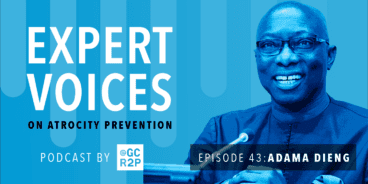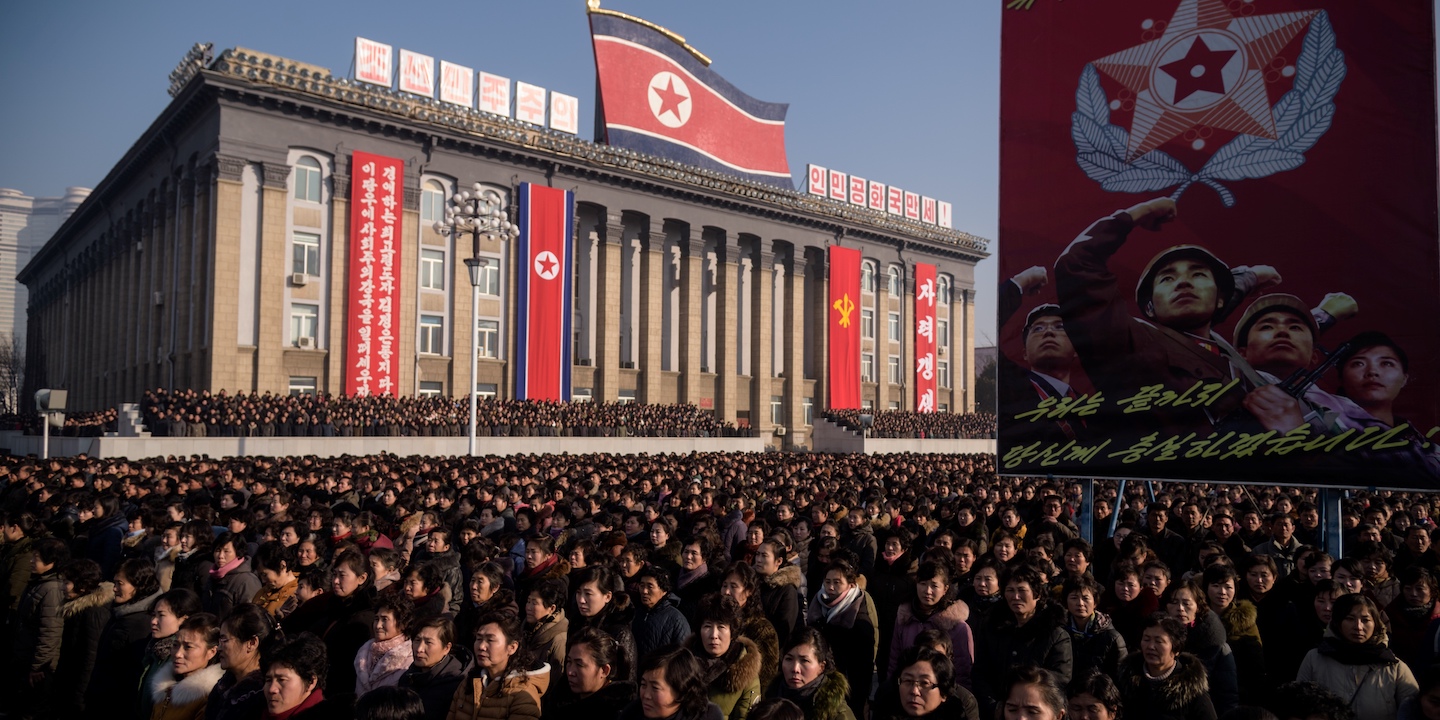

Atrocity Alert No. 195: North Korea, Central African Republic and Burundi
Atrocity Alert is a weekly publication by the Global Centre for the Responsibility to Protect highlighting situations where populations are at risk of, or are enduring, mass atrocity crimes.
Ongoing crimes against humanity in North Korea highlighted at UN Human Rights Council
On 9 March the UN Special Rapporteur on the human rights situation in the Democratic People’s Republic of Korea (DPRK), Tomás Ojea Quintana, presented his latest report to the UN’s Human Rights Council (HRC). The report focused on the plight of women in DPRK, highlighting increased forced labor, as well as widespread sexual exploitation and abuse of female detainees in state institutions.
The following day the UN High Commissioner for Human Rights, Michelle Bachelet, told the HRC that human rights violations in detention centers in the DPRK, including sexual violence against women and girls, appeared “systematic” and “may amount to crimes against humanity.” The High Commissioner said the alleged violations also appeared to have taken place under the “direct authority of two ministries” and with the likely involvement of “higher authorities” in North Korea’s leadership.
During 2014 a UN mandated Commission of Inquiry on Human Rights in the Democratic People’s Republic of Korea found reasonable grounds to conclude that “crimes against humanity have been committed in [DPRK], pursuant to policies established at the highest level of the State,” and that “crimes against humanity are ongoing because the policies, institutions and patterns of impunity that lie at their heart remain in place.” Special Rapporteur Quintana’s latest report indicates that these policies, institutions and patterns have not changed.
Meanwhile the DPRK authorities refuse to meaningfully cooperate with the Special Rapporteur, despite numerous UN General Assembly and HRC resolutions. During its 43rd session, which has now been suspended due to the COVID-19 pandemic, the HRC was due to adopt a resolution extending the mandate of the Special Rapporteur for an additional year.
All UN member states, including members of the UN Security Council, should act on the calls of Special Rapporteur Quintana and High Commissioner Bachelet and explore avenues for accountability for possible crimes against humanity in DPRK. This should potentially include the International Court of Justice, International Criminal Court, as well as domestic courts under the principle of universal jurisdiction.
Ongoing violence in Central African Republic highlights weakness of peace process
From 2 to 11 March violent clashes in the Central African Republic (CAR) between rival factions of the ex-Séléka armed group Front Populaire pour la Renaissance de la Centrafrique (FPRC) resulted in 20 people being killed, including 13 civilians and a staff member of the UN Mission in CAR (MINUSCA). The fighting in Ndélé, in the north east, also forced 10,000 Central Africans – mostly women and children – to flee the area. The violence comes only weeks after the FPRC issued numerous threats against a local MINUSCA base. In a separate attack on 15 March, a Burundian peacekeeper was killed by anti-Balaka armed elements in Grimari, Ouaka prefecture. The UN Security Council condemned these incidents, reiterating that attacks against peacekeepers may constitute war crimes.
Although fighting in CAR has decreased significantly since the signing of a historic peace deal in February 2019, sporadic attacks against civilians and other protected persons continue. According to the UN Human Rights Committee, “entrenched impunity has led to an infernal cycle of violence, massive human rights violations and violations of international humanitarian law.” Armed groups remain in control of an estimated 50 to 70 percent of the country, and continue to compete for control of territory and resources.
Despite being a signatory to the peace agreement, members of the FPRC have been implicated in a number of deadly attacks over the past months. During September, attacks in Birao left at least 23 people dead while 40 were killed in an incident in Bria during January.
All signatories to the peace agreement must ensure its full implementation. All parties must also strictly adhere to International Humanitarian Law and immediately end all attacks against civilians and UN peacekeepers. Domestic and international accountability mechanisms – including the Special Criminal Court in CAR, the International Criminal Court, and the Truth, Justice, Reparation and Reconciliation Commission created under the 2019 Peace Agreement – should work together to combat persistent impunity in CAR and hold all perpetrators of atrocities accountable.
Two months before Burundi’s elections, UN investigators warn of risk of atrocity crimes
As Burundi prepares for general elections in two months time, the HRC-mandated Commission of Inquiry on Burundi (CoI) recently warned that Burundians “are more vulnerable than ever” to potential atrocity crimes. In their 9 March update to the HRC the Commissioners utilized the UN’s Framework of Analysis for Atrocity Crimes. According to the CoI, all eight common risk factors remain present in Burundi and some have increased in the run up to the vote scheduled for May.
The CoI said that the Imbonerakure – the youth wing of the ruling party – has continued to carry out killings, arbitrary arrests and detentions, acts of torture, and rape against alleged opposition members, as well as members of their families. In recent weeks the government has also increased censorship of the media and has arbitrarily detained human rights defenders. The CoI emphasized that, “the increase of hate speech with political and/or ethnic dimensions that circulates unrestricted on social media and the silence of the Burundian authorities in this matter, creates an environment conducive to violence and human rights violations.”
Burundi has been trapped in a protracted political crisis since 2015, when President Pierre Nkurunziza announced he would run for a third presidential term. Since then, the government has systematically persecuted alleged opponents and has perpetrated possible crimes against humanity while isolating itself from international scrutiny. The CoI has deplored “the indifference or the reluctance of some UN Member States to act despite the fact that Burundi has clearly failed to take up its responsibility to protect its population against the risks of atrocity crimes.”
With little time remaining before the election, international and regional actors should take immediate action to prevent any recurrence of crimes against humanity in Burundi. The UN Security Council should invite the CoI to deliver a public briefing on the threats facing the country. Regional states – bilaterally and through the African Union and the East African Community – should increase diplomatic pressure on Burundi’s government to halt the persecution of its opponents and ensure a peaceful, free and credible election.
Related Content


Atrocity Alert No. 434: Sudan, Ethiopia and the UN Human Rights Council
